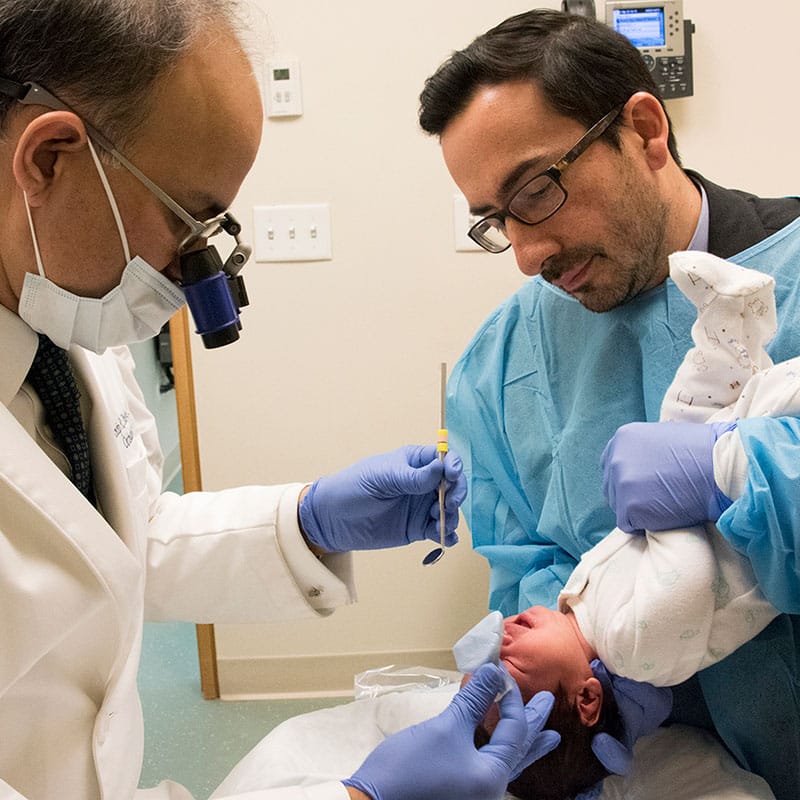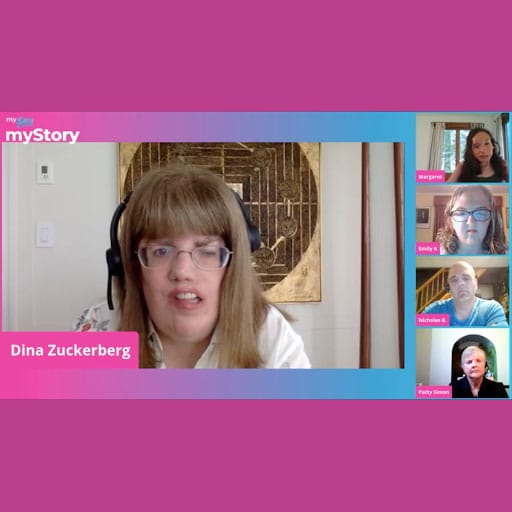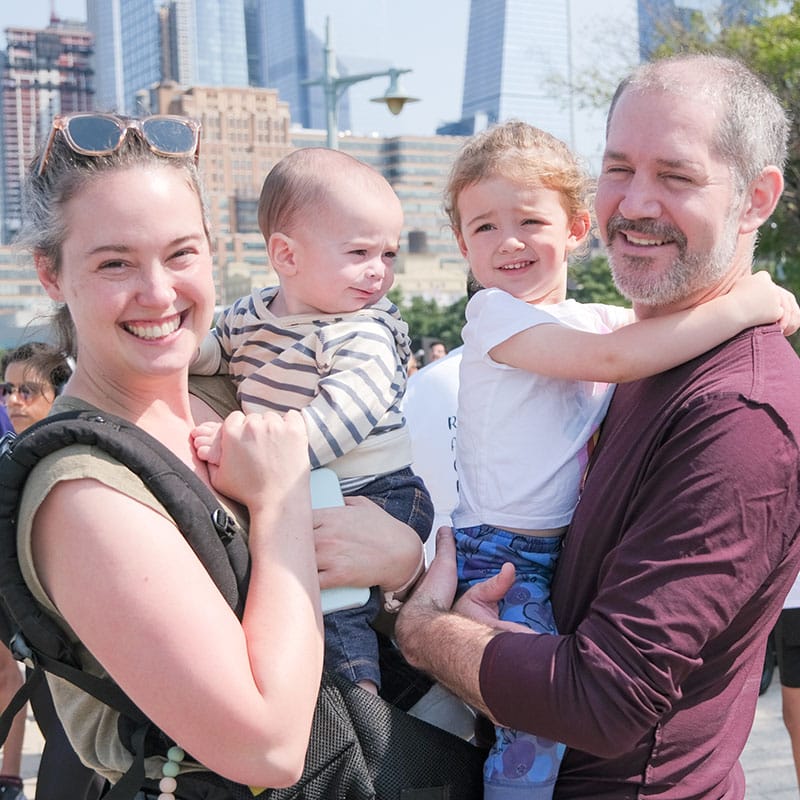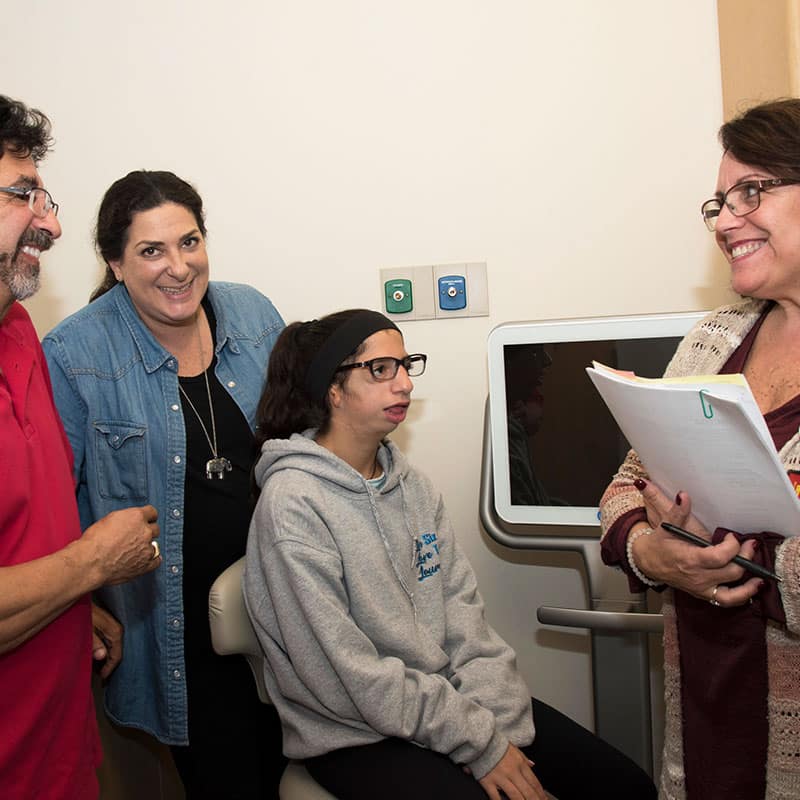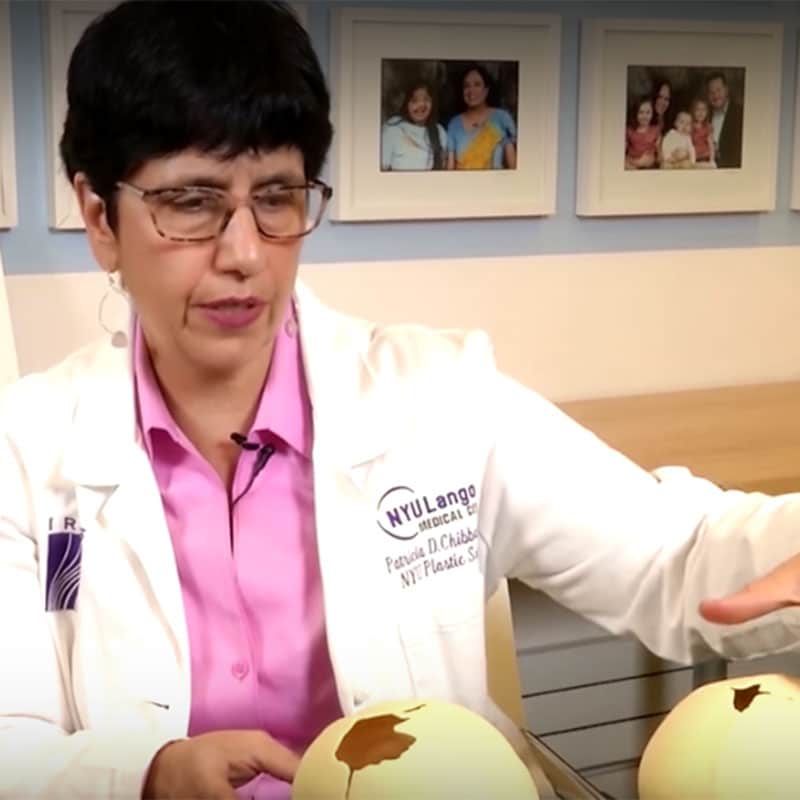Craniofacial Care Centers
Click download the guides as PDFs:
A child born with a facial difference may experience several physical and emotional challenges that need special attention and care. This care usually requires the expertise of an interdisciplinary care team to ensure that all problems are addressed and that your child’s care is coordinated. Such interdisciplinary care is often provided at a craniofacial center. This page features some common questions and answers related to craniofacial centers.
What is a craniofacial center?
A craniofacial center is a facility at which a team of specialists work together to provide coordinated care to patients with facial differences. These centers are usually located in a hospital setting, and address both facial differences that are congenital (present at birth) and those resulting from another medical problem or injury. A craniofacial center is special because it can address the various problems associated with your child’s condition, often in one institution.
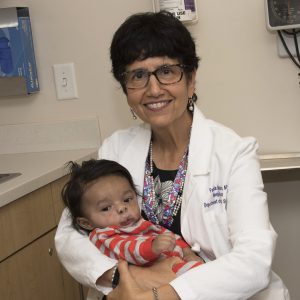
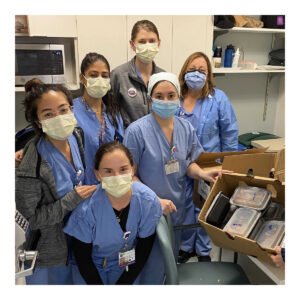
What are the advantages of having my child followed at a craniofacial center?
A craniofacial center has a team of specialized professionals from a variety of fields which may include plastic and reconstructive surgery, oral and maxillofacial surgery, dentistry, orthodontics, otolaryngology (ENT – ear, nose, and throat), ophthalmology, nursing, speech and language pathology, social work, psychology, and genetics counseling, among others. The purpose of craniofacial centers is to provide comprehensive and coordinated treatment for patients with facial differences. Members of the craniofacial team will develop an individualized treatment plan for your child and work with you during every phase of treatment. The size of your team depends upon your child’s facial difference and his or her individualized treatment plan. This team approach ensures that all aspects of the treatment plan are coordinated and appropriate for your child’s specific needs.
When should my child be evaluated at a craniofacial center?
Your child should be evaluated at a craniofacial center as soon as you suspect a facial difference or if there is a family history of facial differences. Early evaluation is advised to determine if your child’s facial difference may interfere with bodily functions such as eating, drinking, and breathing. The goal is to address potential problems, minimize the risk of complications, and maximize the likelihood that your child will reach developmental milestones.
How long will my child need to be followed by a craniofacial center?
Your child’s individualized treatment plan will determine how long your child will need to be followed by a craniofacial center and will vary depending on your child’s condition. Sometimes there may be long periods of time in between visits to the craniofacial center. Your child may need to be a certain age or level of emotional and physical development to have a surgical procedure. Your child’s team will remain available should you have any questions or concerns about your child and his or her care, even if your child is not currently in treatment.
Insurance: is my child’s care covered?
Health insurance policies vary. Determining what is and is not covered can be a complicated and overwhelming process regardless of your family’s specific health insurance policy. We recommend that you communicate with your health insurance provider directly and educate them about your child’s condition. Do not assume that health insurance providers understand the details of your child’s condition. The more information your health insurance company has, the more you will be able to work together. It is important to emphasize to the health insurance company that your child’s treatment and possible need for surgery are not for cosmetic reasons. It may be helpful to submit a letter of medical necessity from your child’s physician(s) to your health insurance company so that they have a better understanding of your child’s condition and treatment plan.
It is also important to inform the craniofacial center about your health insurance coverage. The craniofacial center will be prepared to tell you the costs of having your child evaluated by their team. Craniofacial centers may work with only certain health insurance companies or have different ways of handling their fees when working with various health insurance companies. The craniofacial center will advise you of the health insurance plans for which they are a participating provider. Before your first appointment, inquire with your health insurance plan and the craniofacial center about possible copays, deductibles, co-insurance, and other fees that you will be responsible for at the first visit so you are prepared when you arrive.
Discuss your financial concerns when you make your appointment. You will find that many craniofacial centers are prepared to work with you on financial issues because they want to ensure that children receive the quality care that they need.
How do I find a craniofacial center?
Begin your search for a craniofacial center by speaking with your child’s pediatrician or other healthcare professional. The American Cleft Palate-Craniofacial Association (ACPA) has developed standards for craniofacial centers to ensure that teams are “comprehensive, culturally sensitive, specific to the needs of the individual and readily accessible.” The ACPA has also developed specific guidelines for the care of children and adolescents with facial differences. Click here to find a Craniofacial Care Team >
If possible, have your child evaluated by more than one craniofacial team before choosing your child’s team.
If a craniofacial center is not located near your home, have your child evaluated by the team that is closest to you. Although the overall care of your child will be managed by the craniofacial team, certain aspects of the treatment plan can be implemented by local physicians and hospitals. The craniofacial team may make referrals to clinicians in your community and coordinate and oversee your child’s local care. This arrangement will decrease the number of visits you need to make to the craniofacial center. You may inquire about travel arrangements at the time you schedule your child’s appointment.
EMPOWERING CHILDREN AND STRENGTHENING FAMILIES
For nearly 70 years, myFace has worked with patients and families to provide comprehensive care and support. In addition to providing access to state-of-the-art medical care, myFace provides other important services such as emotional support groups, workshops and educational webinars that offer guidance, counsel and resources for patients, families and the greater craniofacial community across the country.


